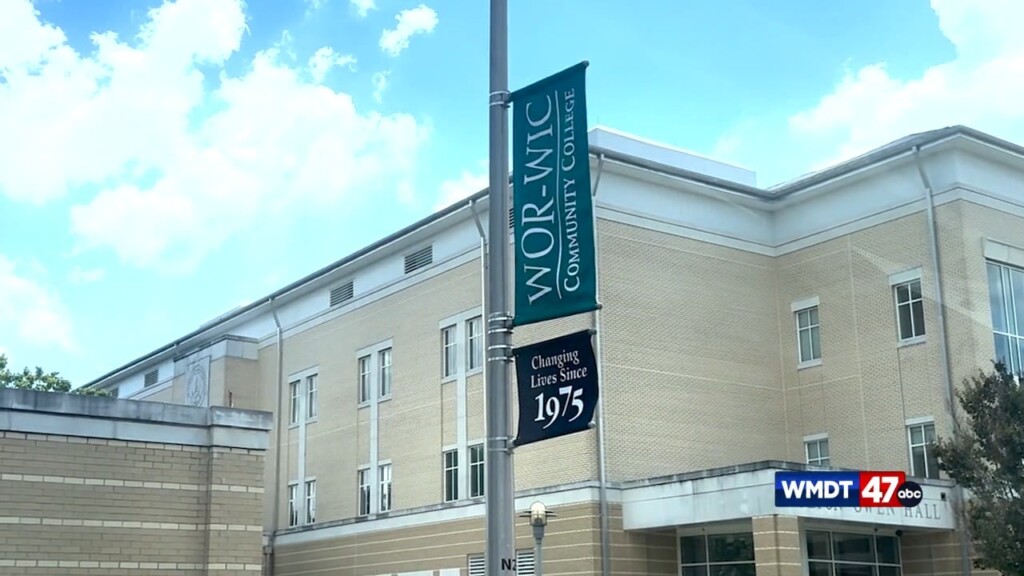Health disparities, difficulty accessing care continues for local LGBTQ+ individuals
DELMARVA – It’s National LGBTQ+ Health Awareness Week.
Access Challenging for LGBTQ+ Folk
Accessing safe, affordable health care, comes with disparities for LGBTQ+ individuals across the country. It’s no different on the Delmarva Peninsula, say local LGBTQ+ individuals and advocates.
“It’s hard to find medical providers in general in Delaware,” said Executive Director of Sussex Pride, David Mariner. “When you’re looking for that extra layer of finding someone who you’re comfortable talking with as an LGBTQ person, and who’s knowledgeable about the issues you face, that’s even more challenging.”
In 2023, respondents spoke up about long wait times for gender-affirming care, as well as a small pool of affirming providers to choose from in the Delmarva LGBTQIA+ Climate Survey.
Dr. Nicole Hollywood, member of the Maryland Commission on LGBTQIA+ Affairs and professor and the University of Maryland Eastern Shore, collected and analyzed the data in that survey.
“I do think Maryland, as a whole, is moving dramatically towards greater inclusivity. But, the Eastern Shore is lagging behind,” said Dr. Hollywood. “A consistent theme running throughout the results was the lack of sufficient medical care for transgender and gender non-conforming individuals, more specifically.”
Greater Health Disparities
Generally speaking, LGBTQ+ individuals face greater health disparities than their straight and cisgender counterparts. Certain health conditions, like hypertension, diabetes, and cancer come at a higher risk for LGBTQ+ folk. Additionally, they are more likely to experience mental health concerns, like anxiety and depression, and are at greater risk of suicide.
“Minority stress has an impact on our mental health; those experiences that we encounter day to day,” Mariner said. “But, we also deal with stress in different ways, and many of us deal with stress in unhealthy ways.”
When it comes time to see a provider to address health concerns, Mariner says many LGBTQ+ individuals may be discourage from doing so out of fear.
“Some people just end up with providers that they may not feel comfortable disclosing everything to, or they may not be as knowledgeable that impact our health,” said Mariner. “It’s important to have providers that we can share our life with, whether it be who’s picking us up at that dental appointment, or who our emergency contact is. We want to be comfortable being able to share that information.”
Knowledge is Power
Dr. Hollywood says that comfortability is important, no matter if it’s a routine check-up, or a visit to the dentist. “Of course, LGBTQIA+ people have teeth. And, nobody wants to be uncomfortable when they’re under sedation, and having oral surgery performed, for example,” she said.
Providers who are knowledgeable about LGBTQ+ health issues can also be an extremely valuable resource for those in the community, says Mariner.
“As we’re approaching the summer, having conversations about Mpox vaccinations, for example,” Mariner said. “We need providers who are thinking about LGBTQ health, and are being proactive about our health.”
And during this week of awareness, advocates say there’s another crucial message for the community to hear: keep the conversation going. “It’s important for us to be our own advocates and talk about these issues proactively, because we can’t rely on other folks to do it for us,” Mariner said.
Sussex Pride will be sharing information about LGBTQ+ health-related issues through their social media channels throughout the week.
“We’ll be discussing a lot of different issues, like substance abuse, mental health, depression. We’ll be talking about Alzheimer’s in LGBTQ older adults, and a lot of the other unique challenges that disproportionately impact us,” Mariner said.
Pushing for Protections
Looking ahead, other advocates are hoping that state-level change will take place.
Dr. Hollywood is one Marylander testifying in support of proposed Senate Bill 119. The legislation would add certain types of gender-affirming treatment under the definition of legally protected health care.
Those treatments would include some medications and supplies. The legislation would also legally protect patients who travel across state lines to receive care in Maryland, and any medical professionals who provide that treatment.
“We have people that are coming to Maryland as a sanctuary state to receive health care, and this would prevent, on return back to their state, from that state taking any action,” Dr. Hollywood said.
The bill has crossed over into the House of Delegates, and will be considered by the House Health and Government Operations Committee. If passed, the law would go into effect on October 1st, 2024.


